Loading...
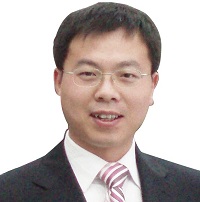
Wei Xu (Fellow IEEE, 2024, IET Fellow) received the both B.E. and M.E. degrees from Tianjin University, Tianjin, China, in 2002 and 2005, and the Ph.D. degree from the Institute of Electrical Engineering, Chinese Academy of Sciences (IEECAS), Xi'an, China, in 2008, all in electrical engineering. His research interests are electrical machine drives and control. From 2008 to 2012, he was a Postdoctoral Fellow with the University of Technology Sydney, the Vice Chancellor Research Fellow with Royal Melbourne Institute of Technology, Japan Science Promotion Society Invitation Fellow with Meiji University, respectively. From 2013 to 2023, he was a Professor with Huazhong University of Science and Technology, China. Since 2024, he has been a Professor with IEECAS. Dr. Xu is a Fellow of the Institute of Engineering and Technology. He is the General Chair for 2021 International Symposium on Linear Drives for Industry Applications and 2023 IEEE International Conference on Predictive Control of Electrical Drives and Power Electronics. He has been an Associate Editor for ten peer-review IEEE journals, including IEEE Transactions on Industrial Electronics, IEEE Transactions on Power Electronics, and so on

Yang Yue received the B.S. and M.S. degrees in electrical engineering and optics from Nankai University, China, in 2004 and 2007, respectively. He received the Ph.D. degree in electrical engineering from the University of Southern California, USA, in 2012. He is a Professor with the School of Information and Communications Engineering, Xi'an Jiaotong University, China. Dr. Yue’s current research interest is intelligent photonics, including optical communications, optical perception, and optical chip. He has published over 270 journal papers (including Science) and conference proceedings with >12,000 citations, one book, six edited books, two book chapters, >60 issued or pending patents, >200 invited presentations (including 1 tutorial, >30 plenary and >60 keynote talks). Dr. Yue is a Fellow of SPIE, a Senior Member of IEEE and Optica. He is an Associate Editor for IEEE Access and Frontiers in Physics, Editor Board Member for four other scientific journals, Guest Editor for >10 journal special issues. He also served as Chair or Committee Member for >100 international conferences, Reviewer for >70 prestigious journals.

João Manuel R. S. Tavares graduated in Mechanical Engineering from the Universidade do Porto, Portugal, in 1992. He also obtained his M.Sc. degree and Ph.D. degree in Electrical and Computer Engineering from the same university in 1995 and 2001, respectively, and received his Habilitation in Mechanical Engineering in 2015. He is a senior researcher at the Institute of Science and Innovation in Mechanical and Industrial Engineering (INEGI) and a Full Professor at the Department of Mechanical Engineering (DEMec) of the Faculdade de Engenharia da Universidade do Porto (FEUP). Since June 2023, he has been serving as the Head of DEMec.
João Tavares has made significant contributions to his field, serving as co-editor of over 90 books and co-authoring more than 50 book chapters and 650 articles in international and national journals and conferences. He also holds 3 international and 3 national patents. His editorial roles are extensive; he is a committee member for numerous international and national journals and conferences, co-founder and co-editor of the "Lecture Notes in Computational Vision and Biomechanics" series published by Springer, founder and Editor-in-Chief of "Computer Methods in Biomechanics and Biomedical Engineering: Imaging & Visualization" published by Taylor & Francis, and Editor-in-Chief of "Computer Methods in Biomechanics and Biomedical Engineering," also published by Taylor & Francis. Furthermore, he is a co-founder and co-chair of several international conference series, including the International Symposium on Computational Modeling of Objects Presented in Images, the ECCOMAS Thematic Conference on Computational Vision and Medical Image Processing, the International Conference on Computational and Experimental Biomedical Sciences, and the International Conference on Biodental Engineering. João Tavares has also (co-)supervised numerous MSc and PhD theses and supervised several post-doctoral projects, participating in many scientific projects as both a researcher and scientific coordinator.
His research focuses on computational vision, medical imaging, biomechanics, biomedical engineering, and new product development. More details are available at www.fe.up.pt/~tavares.

Dr. Huang is a professor and doctoral supervisor of the School of Software Engineering at South China University of Technology. He is currently serving as an associate editor of IEEE Transactions on Evolutionary Computation (IF: 14.3), Complex & Intelligent Systems (IF: 5.8) and IEEE Transactions on Emerging Topics in Computational Intelligence (IF: 5.3), and Director of Teaching Steering Committee for Software Engineering of Undergraduate Colleges and Universities in Guangdong Province. Prof. Huang has made great contributions to the scholarship on the theories and application of intelligent optimization algorithms. For example, he has proposed a time complexity analysis method of real-world evolutionary algorithms, algorithms for efficient and accurate image matting, a method for automated test case generation based on path coverage, etc. Prof. Huang has hosted more than twenty national and provincial projects. He has published two books, Theory and Practice of Intelligent algorithm and Theory, Methods and Tools for Time Complexity Analysis of Evolutionary Algorithm. He has also published more than 80 papers in IEEE TCYB, IEEE TETC, IEEE TSE, IEEE TEVC, IEEE TIP, IEEE TFS, and Science China, including ESI highly cited papers. As the first inventor, Prof. Huang has 49 invention patents granted in China and seven invention patents granted in the United States. He won China Patent Excellence Award and developed an association standard entitled “Standard for glass-box testing without source code” as the first completer. Additionally, Prof. Huang pays attention to social services. Over the past five years, he has given more than 50 public lectures on science and technology for government offices, primary and secondary schools, CCF, YOCSEF, media, etc. He has been in charge of the development and release of six public software systems such as Unit Test Algorithm Platform www.unittestpc.com.cn, Automatic Structural Equation Modeling System www.autosem.net, Evolutionary Algorithm Time Complexity Analysis System www.eatimecomplexity.net, and Energy Storage Optimization System http://energystorage.autosem.net, which have provided free technical service and support for lots of researchers and engineers.
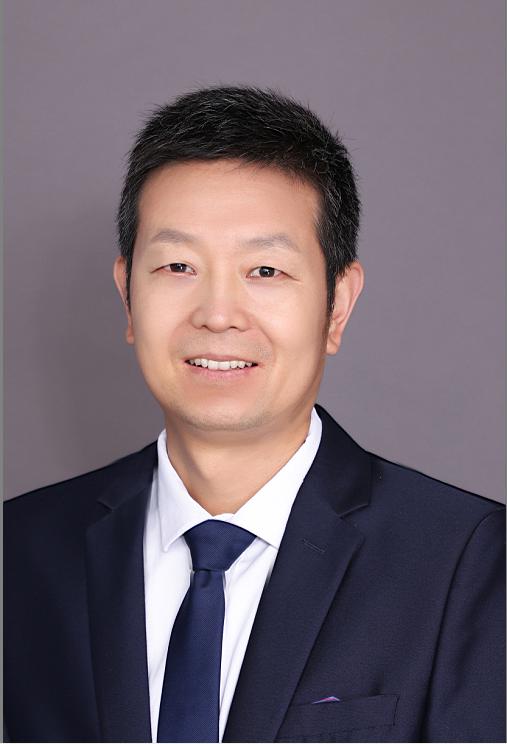
FLing-Feng Shi, male, professor, doctoral supervisor, born in Baoji, Shaanxi Province. He received his Bachelor's degree in Radio from China Jiliang University in 1995, Master's degree in radio from China Jiliang University in 2003 and Doctor's degree in Circuit and system from Xidian University in 2008. At present, He is mainly engaged in research work in the fields of sensor signal processing, positioning and navigation, wireless communication, integrated circuit design, etc. He has published more than 130 academic papers in journals, including more than 100 in journals, more than 20 conference papers at home and abroad, more than 90 papers indexed by SCI (nearly 20 papers in the second district or above, 30 papers in IEEE journals), more than 10 papers indexed by EI, more than 20 papers indexed by ISP, 21 national authorized invention patents, 1 authorized utility model, 6 national invention patents applied for, and 2 invention patents have been transferred. He is currently a senior member of IEEE and serve as a reviewer for over 20 SCI international authoritative academic journals, including IEEE, IET, MEJ, and JIE, as well as various domestic authoritative academic journals such as the Chinese and English versions of the Journal of Posts and Telecommunications in China, and the Engineering Edition of the University of Electronic Science and Technology of China, Associate Editor of IEEE Open Journal of Instrumentation and Measurement, Guest Editor of Applied Sciences, Editor of Computer Science and Technology, and Editor of Electronics World. Expert member of the "863" program, expert in the evaluation of science and technology awards by the Ministry of Education, expert in the "Torch" program, and expert in science and technology evaluation by many provincial and municipal science and technology departments. In recent years, He has led four longitudinal research projects, including national key projects, general projects, key projects of the Ministry of Education, and Shaanxi Provincial General Fund. In addition, He has also collaborated with five related units on five projects. Received 2 second prizes for provincial and ministerial level scientific and technological progress, and 1 award for outstanding teacher at the school level. In terms of teaching, we have published 2 textbooks and 1 English collaborative work. He will teach undergraduate courses on "Application Specific Integrated Circuit Design" and graduate courses on "Microwave and RF Integrated Circuits".
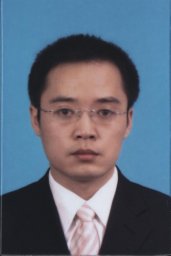
Hesuan Hu (Senior Member, IEEE, ASME Member) received the B.S. degree in computer engineering and the M.S. and Ph.D. degrees in electromechanical engineering from Xidian University, Xi’an, China, in 2003, 2005, and 2010, respectively.,He is currently a Full Professor with Xidian University. He is also a Collaborator with Nanyang Technological University, Singapore, and a Researcher with Xi’an Jiaotong University, Xi’an. He is the inventor of over 40 issued and filed patents in his field of expertise. He has more than 180 publications in journals, book chapters, and conference proceedings in the areas of his research interests, which include discrete-event systems and their supervisory control techniques, Petri nets, automated manufacturing systems, multimedia streaming systems, autonomous vehicles, cyber security, and artificial intelligence.,Dr. Hu was a recipient of many national and international awards, including the Franklin V. Taylor Memorial Award for Outstanding Papers from the IEEE SMC Society in 2010 and the Finalist of the Best Automation Paper from the IEEE ICRA Society in 2013, 2016, and 2017. He has been an Associate Editor of IEEE Control Systems Magazine, IEEE Robotics and Automation Magazine, IEEE Transactions on Automation Science and Engineering, IEEE Robotics and Automation Letters, and Journal of Intelligent Manufacturing. He is an IEEE Distinguished Lecturer.

Lei Yang (Senior Member, IEEE) received the B.E. degree in electronic information engineering from Tianjin Polytechnic University, Tianjin, China, in 2010, and the Ph.D. degree in control theory and control engineering from the State Key Laboratory of Management and Control for Complex Systems, Institute of Automation, Chinese Academy of Sciences, Beijing, China, and the University of Chinese Academy of Sciences, Beijing, China, in 2019. He is currently an Associate Professor with the School of Electrical and Information Engineering, Zhengzhou University, Zhengzhou, China. His research interests include deep learning, intelligent detection, and image analysis.

Dr. Anil Kumar is an Associate Professor at the College of Mechanical and Electrical Engineering, Wenzhou University, China. He has been recognized as a World Top 2% Scientist for four consecutive years (2022–2025) according to Stanford University rankings. His research focuses on defect identification, measurement, and prognosis of complex mechanical systems, including transmissions, rotors, and hydraulic machinery. He has authored 95+ SCI publications with an H-index of 36 and 4,000+ citations. Dr. Kumar has guest edited 13 SCI special issues, serves as Associate Editor of 2 journals, and was Organizing Secretary of CMMNO 2024. He is also a recipient of the Wenzhou City Talent Award and the China Top Cited paper from IOP.
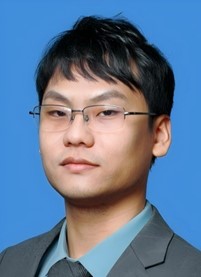
Wei Huang got Msc (with distinction) in quantum technology from University of Leeds in 2013 and obtained PhD degree from Singapore University of Technology and Design (SUTD) with full scholarship in 2018. He was awarded Guangxi Major Talent Project in 2025 and Guangxi oversea 100 talent in 2018. He is currently an associate professor in Guilin University Of Electronic Technology (GUET). His research interests are in quantum optics, applications of quantum optics in multiple (classical and quantum) system and coupling of metamaterials. Currenly, he published 45 jounral paper with first or corresponding author.
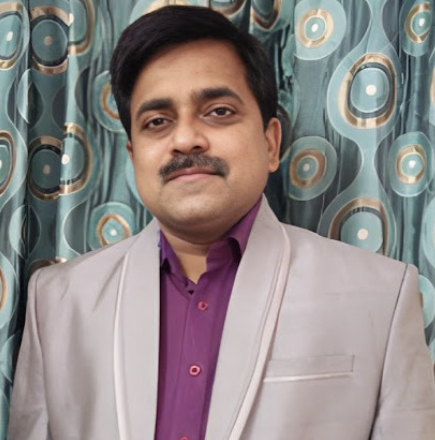
Dr. Yogesh Vijay Hote (Senior Member, IEEE) received the B.E. degree in electrical engineering from the Government College of Engineering, Amravati University, Amravati, India, in 1998, the M.E. degree in electrical engineering with specialization in control systems from the Government College of Engineering, Pune University, Pune, India, in 2000, and the Ph.D. degree in instrumentation and control engineering from the Faculty of Technology, University of Delhi, New Delhi, India, in 2009.,He is currently an Professor with the Department of Electrical Engineering, Indian Institute of Technology Roorkee, Roorkee, India. His main research interests include robust controller design, model order reduction techniques and their applications in load frequency control, and dc–dc converters.,Dr. Hote was the recipient of the IETE M. N. Saha Memorial Award for the Best Application-Oriented Paper as a Coauthor in 2020. He was also selected for the Outstanding Teacher Award under the Post Graduate Category for the year 2021 in Indian Institute of Technology Roorkee. Stanford University has recognized him top 2% Scientist in the world in years 2020, 2021, and 2022.